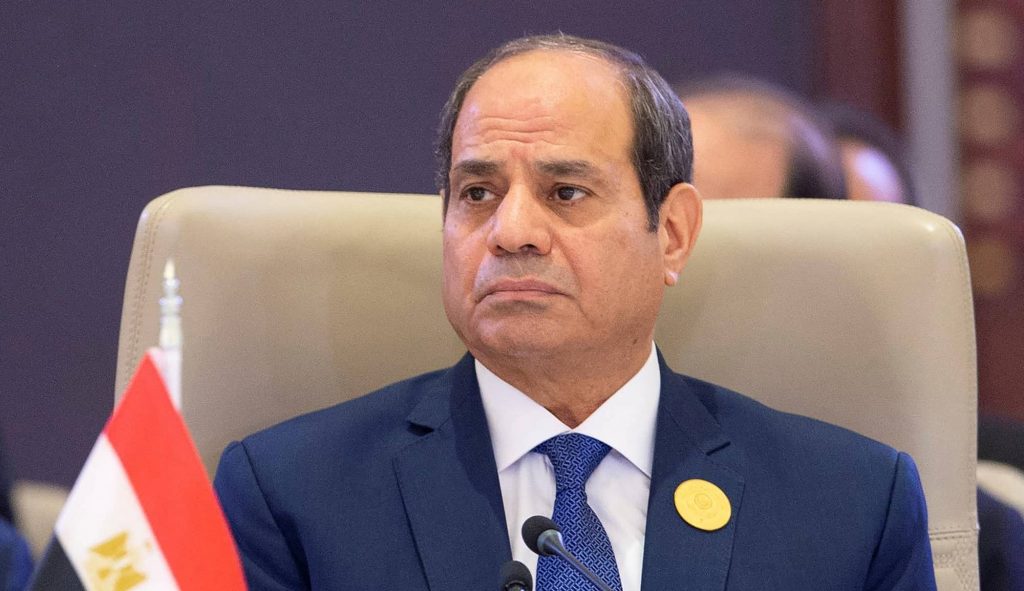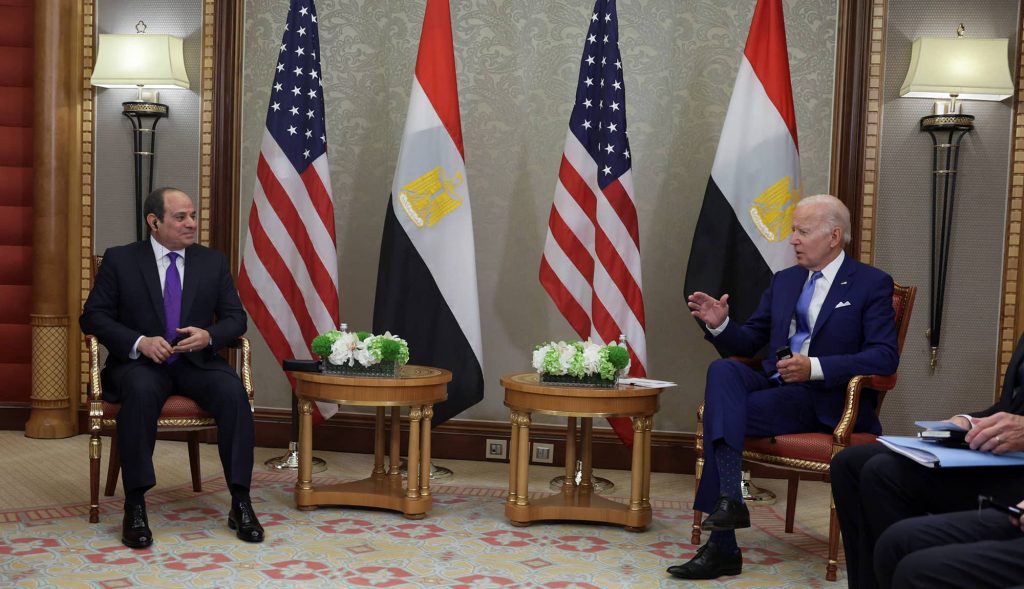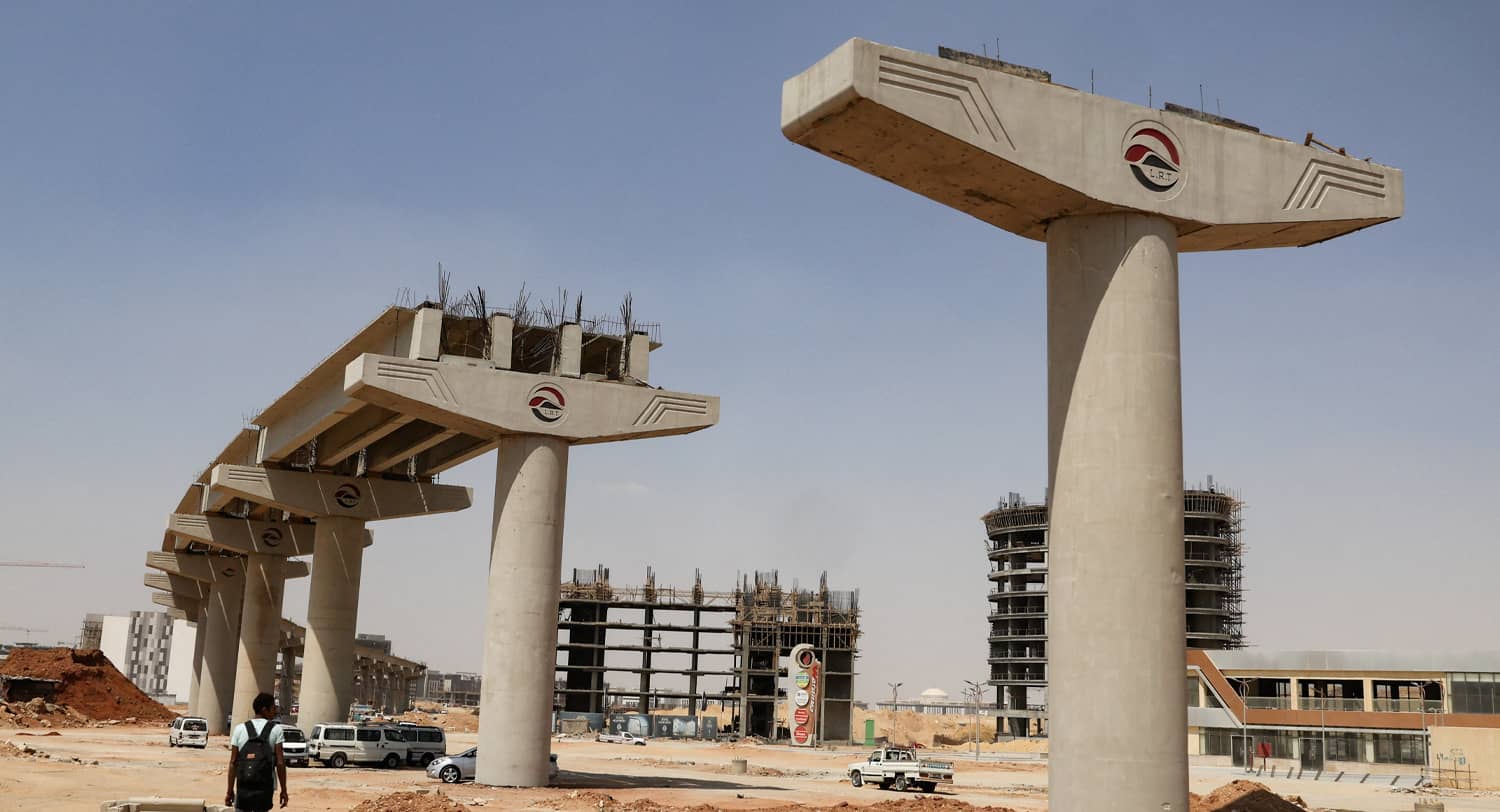In the summer of 2013, Major-General Abdel Fatah el Sisi overthrew the Egyptian government and promised the people a renaissance. Instead, Egypt is decaying. The country has always been poor, but Egypt is now in the worst economic shape in a generation. Poverty and income inequality remain stubbornly high as Egyptians grapple with record inflation nearing 40 percent.
With the post-coup euphoria—much of it state-manufactured—now something of the past, President Sisi rules almost exclusively through coercion and fear. The Egyptian state can bring significant force to bear against its own people, but violence is expensive and unreliable. There may come a day when, like the people who came out to Tahrir Square in January 2011, Egyptians decide either that the costs of opposing the government are either not as great as they had imagined or that they are willing to bear whatever violence the state can mete out. When public fear dissipates, political control becomes more difficult.
Yet, what choices does Sisi have? He only has enough money to buy off his most important constituents—the military, intelligence services, and senior members of bureaucracy. Also, he lacks a heroic narrative and vision for Egypt’s future that would render people loyal to him regardless of their economic circumstances. Gamal Abdel Nasser had the July 1956 nationalization of the Suez Canal to sustain him politically. Both Anwar el-Sadat and Hosni Mubarak relied on “the Crossing [of the Canal]”in the October 1973 war and the roles they played in that conflict to bind themselves to Egypt’s greatest modern military achievement, underscoring the legitimacy of their authority. Sisi may have rescued Egypt from the darkness and authoritarianism of the Muslim Brotherhood, but he gave Egyptians another version of both.
Sisi has overseen the construction of bridges, highway interchanges, and roadways that are sound investments benefiting the Egyptian economy, but a range of ill-conceived projects whose economic rationale is suspect overshadow the development of that productive infrastructure. Cairo is an enormous megalopolis of almost 23 million people creaking under its own weight, but the construction of Sisi’s New Administrative Capital (as yet unnamed)—the first phase of which has cost over $45 billion, and it is not even complete—is a waste of precious resources. Egyptian officials boasted that the project will not have an impact on public finances. This is simply not true as the state has already underwritten the project through debt, budget allocation, the sale of state lands from one government entity to another, and government subsidized loans. This has contributed to Egypt’s ranking as the second most indebted country in the world (after war-ravaged Ukraine). All while the state continues to line the pockets of Egypt’s armed forces, its favored contractors, and real estate developers.
At the same time, the Egyptians have embarked on a number of other costly infrastructure projects that include building a summer capital called New Alamein, reviving a failed Mubara-era mega project aimed at watering a “new valley” to the west of the Nile, called Toshka, and developing a nuclear power plant in a country that has more electricity than it can use. The total bill for these projects has wiped out the investments Saudi Arabia, the United Arab Emirates, and the United States (by way of the International Monetary Fund) have made in Sisi and Egypt’s economic well-being. Egypt’s international debt is $163 billion and its total debt is 93 percent of GDP. This traps Egypt into borrowing more money to pay off previous debts. Last spring, Prime Minister Mustafa Madbouly declared that Egypt would repay these debts, but it is difficult to see how, given that Sisi seems unwilling to reconsider his profligacy.

Egypt’s economic deterioration has reinforced an ongoing shift in the country’s geopolitical position. Egypt remains important globally by dint of its size and location, but that importance has less to do with the Egyptian government’s ability to be a source of regional stability or shape the strategic environment, and more to do with the risks the country represents to both. Egypt’s longtime partnerships with the United States and the West have now been transformed. Rather than positioning itself as a key partner in achieving common goals, Egypt’s deterioration threatens to adversely affect them.
For example, instead of asking how Egypt can be helpful on Israeli-Palestinian issues and on efforts to outmaneuver China in the region, the American policy community is wondering whether Egypt will default on its debts, if Sisi’s rule is stable and if not, who and what would come next. These concerns reflect an uneasiness among analysts about Egypt’s trajectory given the government’s debt-fueled spending, the country’s dire demographics, and the military’s role in the economy and how that affects both the economy and the military’s readiness.
Egypt, which was never as politically stable as it was often portrayed, seems to be entering an acute new phase. Egyptians are suffering under difficult economic conditions. President Sisi’s popularity seems to have ebbed, despite the protestations of Egypt’s social media trolls. The country is nearly bankrupt, and people are trying to flee to Europe in ever increasing numbers. Sisi’s only answers to these challenges are coercion and force.
The problem for policymakers in the United States, Europe, Israel, and the Gulf—all of whom have sunk costs and much at stake in Egypt—is understanding Egypt’s current political and economic dynamics and what they mean. Is Egypt on the cusp of a revolution? It is hard to say, given that revolutions are by their nature unpredictable. Will Sisi oversee the development of a more brutal dictatorship? Egypt is already profoundly repressive. To be sure, the situation could always get worse, but the scale of repression in Sisi’s Egypt is such that any additional pressure on the population is likely to have only a marginal impact.
Complicating matters in Egypt are the interests of countries that have an influence on matters in Cairo. The Israelis want what they have always wanted—stability—without regard for the character of the regime. It is important to note that given widespread anti-normalization and anti-Semitic sentiment among Egyptians, a more open and democratic Egypt could be a threat to Israel.
The Europeans are hamstrung into support for President Sisi because they fear an exponential increase in the number of Egyptians fleeing economic dislocation and despotism across the Mediterranean. An exodus from Egypt could dwarf the one million Syrian asylum seekers and refugees who made their way to Europe since the Syrianuprising broke out in 2011.

American policymakers are worried about China’s growing influence in the Middle East and do not want to “lose” Egypt. They have an incentive to continue sending military aid to Egypt despite President Joe Biden’s public rhetoric about the importance of democratic values in US foreign policy and human rights conditions. The aid, and other modest efforts to keep Egypt on the side of America, is likely to have only limited impact on Egyptian policymakers and security officials who do not want to choose between Washington and Beijing, or are playing one off against the other, or who preposterously believe that the United States is engaged in a surreptitious effort to undermine Egypt’s political order.
Gulf leaders have long expressed a need to be assured that they enjoy Egypt’s support, making the case that without Egypt, its huge population, and well-equipped military, they are more vulnerable to the Iranian threat. This is odd given the fact that they do not want an Egyptian military presence in the region. Nevertheless, this need was particularly pronounced after the Egyptian uprising in 2011 and the year-long tenure of the Muslim Brother, Mohamed Morsi. That is why Saudi Arabia and the United Arab Emirates provided political, diplomatic, and reportedly material support to the July 2013 coup that overthrew Morsi and refloated the Egyptian economy.
Over the last decade, as regional power has shifted more to the Gulf, and leaders there have grown more confident in their own ability to shape the geo-political environment, the Saudis and Emiratis have become less solicitous toward the Egyptians. They are no longer willing to transfer money directly to Egypt’s treasury, preferring instead to invest in state assets or projects that have the seal of approval from international financial institutions. Nevertheless, Egyptian elites believe that despite tough rhetoric, Gulf leaders will step in to rescue Egypt’s economy when the time comes.
The combination of Egypt’s economic and political descent and the narrow concerns of interested powers has left policymakers, especially in the West, without many options. There remains a constituency in Washington for promoting democratic change, but since the false dawn of the uprisings a little more than a decade ago, analysts and activists have been bereft of ideas about how to help forge a more open and just Egypt. The recent outcry over the Biden administration’s willingness to withhold less military assistance than previously despite the Egyptian government’s ongoing and increasing human rights violations are instructive. The White House’s hypocrisy notwithstanding, supporters of cutting more aid have never been able to explain how this would compel Sisi to improve his human rights record or make the country more democratic.
Given the challenges of promoting democracy in Egypt and its low probability of success, policymakers may want to focus their attention on economic help. It makes sense given Egypt’s needs. Yet this is exactly what these powers have done over the last decade only for the Egyptians to squander enormous sums of money.
It may very well be that there are no good alternatives to the current policy for Egypt’s partners. The country has turned inward. Its leaders are deeply paranoid and are convinced of the path they have chosen. For the countries that could conceivably influence Egypt’s political trajectory, the status quo appears to be the best option. Given the magnitude of the country’s problems and the West’s—but mostly Washington’s—parlous record trying to transform Middle Eastern societies, it may be the most realistic approach to Egypt under the present circumstances.

